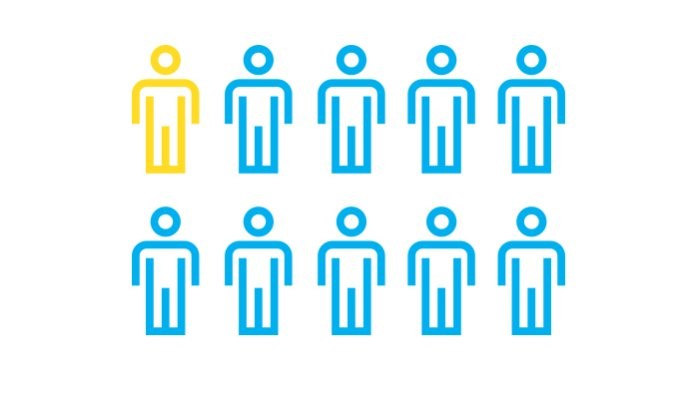
Are you admitted to practice law in multiple jurisdictions?
If so, you might be among the 12.1% of Canadian lawyers working at large firms who can flash more than one badge to appear in court. If you think that the most common combination is to be admitted to practice both in Québec and in Ontario, you might have to guess again. Oddly enough, 31% of “multi-bar lawyers” in Canada are allowed to practice in the state of New York.
We analyzed the profiles of 3,142 lawyers who currently work in Canada’s largest law firms
We analyzed the profiles of 3,142 lawyers who currently work in Canada’s largest law firms and surveyed quite a few partners and lawyers from such firms.
Under national mobility agreements many lawyers are allowed a limited practice in other provinces; however, only those that are called have no restrictions when representing their clients’ interests.
This article, when stating a lawyer is admitted to practice refers to those that are fully licensed.
Roughly, only 1 out of 10 lawyers who work in these big and competitive law firms can practice in more than 1 jurisdiction. Is this an asset to these already top-notch lawyers? Absolutely, it sets them apart from the crowd:
· 12.1% of these multi-bar lawyers have been called to more than 1 bar
· 1.6% have been called to 3 bars
· 0.2% have been called to 4 or more
How unique is your combination?
A compelling law-firm bio reads: “Jane Roe is one very few lawyers whose call to both the Quebec and Ontario Bars qualifies her as a ‘national’ practitioner”. Jane Roe is among the 12.8% multi-bar lawyers who combine ON & QC bars. Other common combinations are:
· AB & ON: 16.8%
· BC & ON: 16.5%
· Any province & any territory: 9.0%
· BC & AB: 8.8%

However, the most common combination for a lawyer in Canada actually does not involve any of the Canadian provinces or territories, but rather the State of New York:
· Canadian bar & NY: 31.1%
· ON & NY: 21.5%
“It has been useful to my practice”
Many multi-bar lawyers could argue that, in their case, this was a result of having had to update their credentials upon moving to another province or territory.
But what about the increasing number of lawyers being admitted to practice in the Territories? Why are most lawyers with more than 3 calls to different bars specialized in litigation, environmental law or aboriginal law? Or why would someone in the area of capital markets be admitted to all Prairies and the Yukon?
For many it has been a strategic decision.
Litigation attorney Keith Marlowe, an associate at Blakes, is among the 0.06% of lawyers in Canada who can actually appear before courts in more than 6 jurisdictions both in the US and Canada. He uses his Alberta and Ontario bar calls on a daily basis. His multiple-bars have helped him to speak the technical language required in each jurisdiction. For example, Alberta has adopted the term “questionings for discovery”, whereas other provinces use “examinations”; in the US the proper term is “depositions”. England and Wales have their own jargon that is familiar to him as well, because in fact, he is admitted to practice there too. 8% of Canada’s multi-bar lawyers have been called to the Bar of England and Wales.
Maxime Faille is a partner in Gowlings’ Ottawa Aboriginal Law and Litigation Group. He has been called to the NWT, Yukon, and Ontario bars, and has an impending call to the Nunavut bar. In his words: “the northern jurisdictions do not participate in mobility and, as such, an ability to practice law on behalf of clients there is quite limited.” Multi-bar membership has been essential to his engagement in constitutional litigation in the territories and incidentally helpful to his practice in Aboriginal law, where he deems that having multiple bar calls is increasingly the norm and something necessary.
Mathew Good, a Vancouver associate of Blakes’ litigation group claims that his 5 bar admissions, quite a record, have helped him comply with the Inter-Provincial Mobility Agreement that sets practice limits on lawyers who haven’t been called to the relevant bar. Matthew points out that these admissions to multiple-bars “have been beneficial to my practice, because they have given me – through examinations and admission – deeper familiarity with jurisdictions in which I regularly practice, as well as respect and connection with members of those Law Societies.”
Bill McNaughton, a partner at BLG is licensed to practice in BC, Alberta and Yukon. This has been especially useful to his practice in TeamNorth®, a section of BLG servicing Nunavut, Northwest Territories, Yukon and the upper regions of several provinces.
Patrick Floyd is a partner at Gowlings Ottawa office. He has been called to the New York, Ontario and Nunavut bars. This has not been due to him moving from one place to the other, but rather an asset to his practice in aviation. His combination is actually an excellent blend of Canadian provinces and Territories and the US.